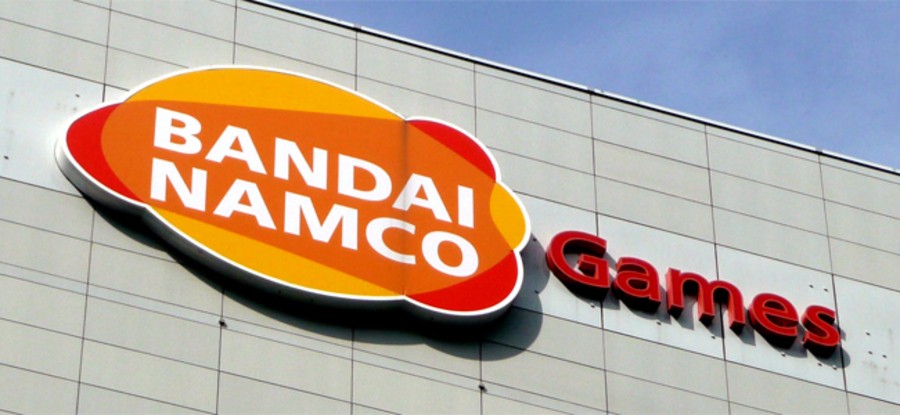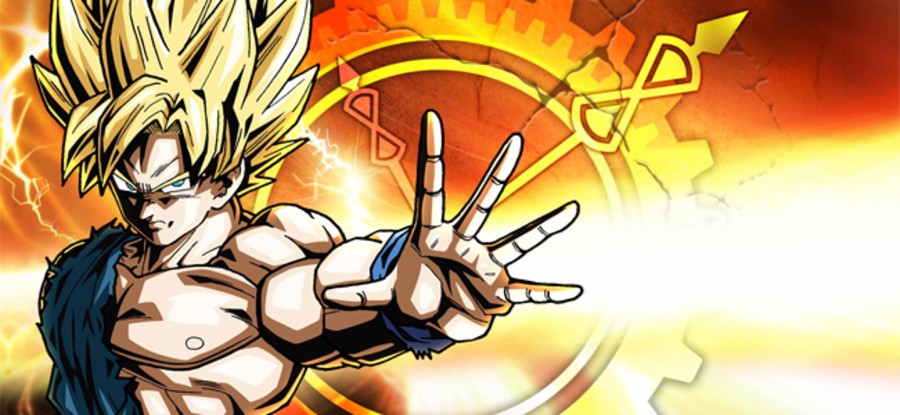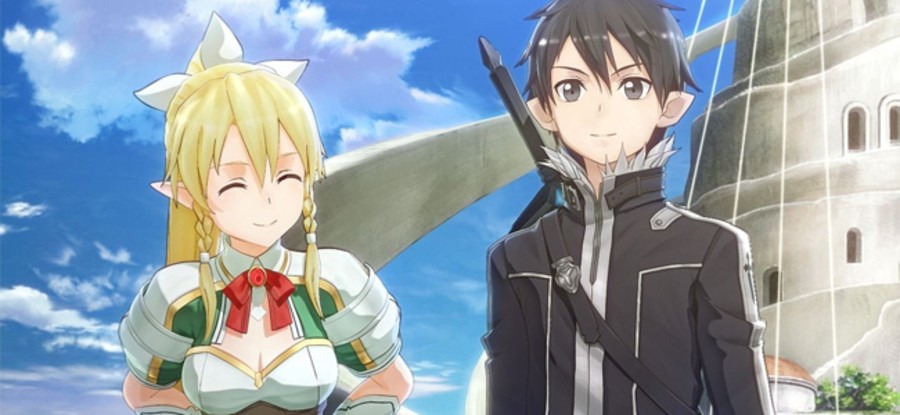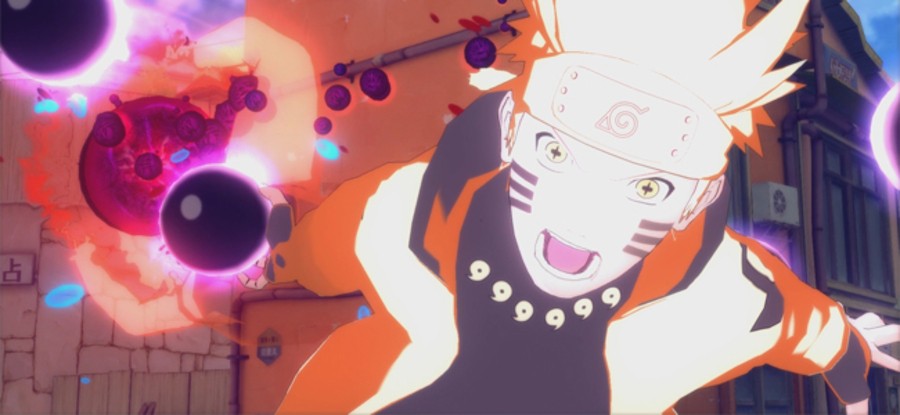
It's no secret that Bandai Namco has been on a localisation spree since the PlayStation 4 launched almost two years ago. It's been busy pumping out translated titles right, left, and centre for months, so we thought that it'd be interesting to get a little more insight into the publisher's strategy.
If you cast your mind back to the PlayStation 3 era, you'll likely recall relatively dark days for Japanese game development – and even darker days for localisation efforts. However, due to the sheer popularity of Sony's newest home console, it's beginning to make more and more sense for Japanese companies to localise their properties and take advantage of the booming overseas market.
With this in mind, we had a chat with Bandai Namco's head of localisation, Franck Genty, and localisation managers Clemence Aubry and Manuela Riboldi about the shifting state of the Japanese games industry, and the publisher's refreshing insistence on localising its various properties.

Push Square: Bandai Namco is arguably the best in the industry when it comes to localising Japanese games in the West at this point. Can you shed any light onto why, as a publisher, this seems to be one of the most important parts of your business?
Bandai Namco: First of all, thank you for taking an interest in the localisation tasks of Bandai Namco Entertainment group titles and IPs. As a Japanese publisher, if you look at the video games market as a whole, you need to acknowledge the fact that there is a wider audience at a worldwide level. To reach this audience, you have to include localisation as part of your development strategy – which is what we do.
Interacting with the world to understand each other is part of the company's value, and localisation is one channel to convey this: share values by addressing them to the people in their own language. Japanese licenses are also very popular and renowned in the West, and it's important to make these games available to Western players in their native languages.
This year alone, Bandai Namco's already published the likes of Dragon Ball XenoVerse, J-Stars Victory VS+, and Sword Art Online Re: Hollow Fragment. How important are licensed games to your localisation strategy?
Licensed games are at the core of BNE's localisation strategy. The licensees of some of the main BNE IPs have already broadcast most of them across several international territories and therefore contribute to installing and building up the fanbase of our games.
We know that anime fans are expecting us to release games based on their favourite anime or manga. If a franchise is already very popular and allows us to create quality games consistent with the franchise universe, then we are already halfway to success.

Speaking of Sword Art Online, the next game, Lost Song, is releasing later this year. The property's got a large worldwide fanbase, but are localisation efforts ever influenced by the popularity of a game's source material?
Yes, of course, the more people expecting a localised version of a title, the more efforts we make when it comes to localisation. We cannot ignore the fact that the franchise is very popular. In the case of Sword Art Online, our choice was quite simple: we could allow overseas fans of the franchise to enjoy a brand new arc of the story while letting RPG fans and players not familiar to the anime discover a great RPG game along with a deep universe.
Naruto Shippuden: Ultimate Ninja Storm 4 was recently delayed into 2016, but it's safe to say that a game based on such a renowned franchise must be important to Bandai Namco. Do you feel that there's a responsibility in delivering big games like this to Western fans of the property?
We are well aware that anime fans expect high quality games based on popular franchises. Naruto Shippuden being such a key IP which has recently reached its conclusion, we believe that it is our duty to deliver to fans the game that they deserve. Sometimes, in order to reach such goal, the best option is to postpone the street date and keep developing the game until the final product matches our expectations.
We have a lot of respect for fans and quality is our priority for big and small games.

The PS4 has proven to be a huge success in Western markets so far. Has its popularity had an impact on Bandai Namco's decisions on whether or not to localise games?
The huge success of the PS4 is undeniable, and the fact that the number of PS4 units sold worldwide is increasing means that we have to take notice. So to answer your question, yes, to a certain extent the success of a console such as the PS4 influences the decision making about localisation and targeted languages.
Can you tell us anything about how the Japanese arm of Bandai Namco views the Western markets? Does it feel that it's important to maintain a presence with Japanese games in North America and Europe?
Yes, the Japanese headquarters of Bandai Namco are willing not only to maintain a presence in North America and Europe, but also to expand BNE's market shares in these territories, with localisation into Arabic, Polish, Russian, Mexican Spanish, and Brazilian Portuguese becoming more and more frequent.
We may not get another chance at this, so we might as well say it now: you should really consider localising some Gundam games – we definitely need more Gundam games. What do you think?
Indeed, we know that there is a high demand from fans for Gundam games. Rest assured that this is something that we keep in mind.
What do you think of Bandai Namco's localisation efforts? Are you a fan of the licensed anime and manga titles that it's been bringing West? Tell us what you'd localise next in the comments section below.
[ Thanks to Bandai Namco's localisation team and Gareth Bagg for making this interview possible ]





Comments 19
intresting read
and as a HUGE Manga and Anime fan I love what they are doing with their Anime titles
you should try Square Enix next (and ask what is happening with the Dragon Quest series)
Great interview, @ShogunRok. It's nice to see that publishers have learned that with modest expectations, appropriate budgets, and targeted marketing there's an audience for the slightly more niche Japanese games on consoles.
Well, some of them have learned, anyway...
They've been heavy Vita supporters, so I'm happy!
Aww, as a fan of the tales of series, I was hoping you might ask about Vesperia's 'final-mix-F-like-version' only in japan at the moment.
I played the 360 version but that story is so, I dunno, incomplete and individually episodic (each arc feels like they have almost nothing to do with each other outside of positioning people for the next arc) that I want the japan version.
And I heard a rumor that the finish point for the 360 version is the halfway point in the ps3 version, though this is unconfirmed from my personal knowledge store.
Gimme Tales of the Abyss on Vita!
Nice interview, and thanks Bandai Namco, keep up the good work!
@Link41x In Japan, sure, but their western divisions like to pretend Vita doesn't exist.
@wakkawakka Not necessarily true at this point. Any game that's released on multiple platforms like J-Stars Victory VS+ and One Piece: Pirate Warriors 3 have all ended up on Vita in the West.
Again, the PS4 is the main reason all of these games are getting localised in the first place, though.
@ShogunRok Yeah, like Sword Art Online, that game that sold so poorly on Vita it was the #1 downloaded title for the platform in North America last year. The game sold so poorly that its western results shocked Bandai Namco and its production staff. It sold so poorly that Bandai Namco could justify retranslating it for a PS4 port no one asked for. If it wasn't for PS4 no Vita games would ever exist. Literally no one buys Vita games. No one.
You'd think someone with a Zechs avatar would know better given BNGI just announced an English release for the Vita exclusive Gundam Extreme VS-Force.
Bandai Namco's western divisions treat Vita like garbage (following Sony's lead, I guess). If a game is exclusive to Vita in Japan they'll only release it in the west if they can port it to PS4, even if it would have sold fine on Vita over here. Tales of Innocence R? No localization. God Eater 2: Rage Burst (this even has a PS4 version)? No localization. Inserting the non-Google Translate SAO script into the Vita version? Ha, no. Dragon Ball Xenoverse? No Vita version [or even Remote Play]. Naruto Anything? No Vita version. The western divisions can justify random Xbox and PC versions, though! It's not as bad as it once was, since at least now they're not skipping the Vita versions of localized games like they used to with Dynasty Warriors Gundam and One Piece: PW2. However, given how they are, who knows how long that'll last.
Watch the language -Tasuki-
Great interview, please do more like this.
GUNDAM!
@wakkawakka So what you're saying is Namco Bandai treat a dying system like crap by supporting it better than almost every other publisher out there right now? Okay then.
I buy more Namco Bandai titles than I'd like to admit. lol
He can make you pregnancy. I love bots lmao
I think with a smaller japanese game market, it make sense to push into the western market. I love japanese games and therefore i love my vita.
Can't really think of a Bandai Namco series I've been a huge fan of other than Tekken. But it's nice to see one of the old guard still trying.
I always thought all the jrpg's getting released was thanks to the vita tbh, seeming they was rolling in before the ps4 was even released.... Not to mention how many are on the vita compared to the ps4
@Bliquid I doubt they'll localized God Eater 2: Rage Burst as the first one didn't do so well sales wise in the West if I remembered correctly. They also showed God Eater: Ressurection during TGS, by the way.
Yeah, I'm hoping they localized JoJo's Bizarre Adventure: Eyes of Heaven as I quite enjoyed JoJo's Bizarre Adventure: All Star Battle.
@Bliquid I agree and speaking of MonHun games - I've been waiting for Capcom to make/port a Monster Hunter game since the PS3…
Tap here to load 19 comments
Leave A Comment
Hold on there, you need to login to post a comment...